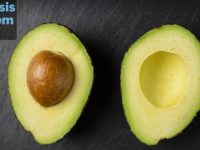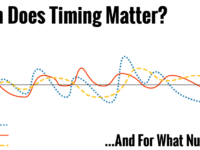There is a camp amongst athletes that favors a high-fat, low-carbohydrate approach. Their enthusiasm is fueled almost entirely by the work of three researchers (Stephen Phinney, Jeff Volek, and Tim Noakes), who despite over 30 years worth of research have yet to produce any notable studies that demonstrate a low-carb diet to work better than—or even equally as well as—a high-carb diet.
Now don’t get me wrong—what these researchers study is incredibly important, and by no means has their research been worthless. In many cases they’ve revealed aspects of fat-adaptation that we might not know about otherwise. They’ve also done significant work to elucidate the potential benefits of low-carb diets for different disease states. So I do respect these researchers and the work they do—I just can’t find any solid justification for their hypothesis that a low-carb diet would benefit an athlete.
At best, what we’ve seen in athletes who go low-carb and become “fat-adapted” is a mere preservation of performance without any notable improvements. Furthermore, this “preservation” only applies to submaximal aerobic exercise—high-intensity exercise performance is usually severely compromised. Thus, the evidence that going low-carb benefits any athlete’s performance (let alone a climber’s) is weak, mostly anecdotal, and often driven by dogma.
I hope you, my climbing reader, are not a carb hater—but I’ve also learned to be proactive in my approach. You may not fear carbs today, but the anti-carb camps are pernicious. Let me start the immunization process by sharing some bulletpoints on why going low-carb is a terrible idea for a climber.
Going Low-Carb? Say Goodbye to Power!
At first glance, carbohydrates are not a significant source of power for a climber. The only study that has examined energy system use in climbers found that carbohydrates only supplied about 10-20% of the total energy for a climb (through anaerobic glycolysis, anyway). By contrast, creatine supplied 40% and the generic “aerobic energy” pool (which could be either fat or carbohydrates) supplied about another 40%. Without further study, we can’t know for certain how much aerobic energy was supplied by either carbohydrates or fats, so that is perhaps a moot point…
…Or maybe it’s not. We know that carbohydrates are capable of producing over double the ATP (cellular energy) through aerobic respiration than fats are (16.7 mmol/sec vs 6.7 mmol/sec). In the energy systems article mentioned above, the researchers hypothesized that the aerobic system’s primary purpose in climbing is to regenerate the spent creatine molecules back into energy-containing creatine phosphate molecules. Given the short amount of time a climber has between holds to regenerate creatine, and given that carbohydrates are capable of restoring about 2.5x as much creatine as fats, which fuel do you think is more capable of sustaining power and power endurance? The answer should be clear.
Low-Carb Diets Make Exercise Feel “Harder”
Several studies show that restricting carbohydrates increases perceived exertion. Briefly put, “perceived exertion” is how our body and brain communicate in order to prevent you from over-exercising and suffering catastrophic muscle failure. When dietary carbohydrates go down or ketones (a byproduct of a low-carb diet) go up, so does perceived exertion.
In case you think perceived exertion is something you can just push through, think again. “Perceived” exertion is essentially a proxy for “actual” exertion and determines to a large extent how long your body will let you exercise before you get fatigued. In trials, perceived exertion is inversely correlated with time to fatigue, meaning that the harder you think you’re working the sooner you actually fatigue—even if you’re doing the exact same amount of work as you could normally do in better conditions (like with a higher carbohydrate diet)!
Fewer Training Adaptations Are Made on a Low-Carb Diet
Finally, low-carb diets may actively impair training adaptations, at least over the long-term (and at least in untrained endurance athletes). In one study, untrained cyclists undertook an 8-week diet and training routine where one group consumed a high-fat diet and the other a high-carbohydrate diet but otherwise exercised and ate the same. At the end of the study, the high-carb group had improved by a not-so-small 56% compared to the high-fat group! That’s a pretty remarkable difference.
How much does this study have to do with climbers? Perhaps not much, since we’re not endurance athletes—but consider the implications of the previous two points in conjunction with this one. If you can’t climb with as great of power, and you can’t climb for as long, then assuming all other factors are equal you will definitely improve less than a climber who can train longer and harder. I won’t go so far as to say you’ll improve 56% less (some of that figure can be explained away by metabolic adaptations), but my money will always be on the athlete who supplies their body with the necessary energy for high-intensity training.
Conclusion
Climbing is tough, gritty, powerful work, and carbohydrates are simply more capable of fueling that work (aerobically and anaerobically) than fat is. If you skimp on carbs, you’re potentially limiting your climbing potential both in terms of power and endurance. Likewise, the evidence that a high-fat diet confers any special advantage to climbers (or any athlete) is limited.
I don’t predict the high-fat athlete craze to disappear anytime soon; in fact, I suspect it has yet to peak. But I do hope you resist the urge to make such dramatic changes to your diet when the evidence so clearly indicates that the “fat-adapted climber” is an idea without merit. If your goal is improved performance—pushing your limits as a climber—then you’re going to need the help of carbs.















How many carbs would you recommend a climber to eat then? I read the article on eating 20g of protein, 5 times a day, every 3 hours. Is there a general rule like that for carbs?
There are some general rules for carbs as well, which I’ll write into an article at some point. In general, though, most climbers would benefit from a diet that is around 55-65% carbohydrates, and then to try to spread their intake around according to need—basically, eat more carbs when you need more (in and around exercise) and otherwise evenly spread them.
Awesome. Thanks for the info. I’m excited that I found this site. I’ve been wanting to find a diet that wasn’t hard to follow but is also more catered to a climber so this is perfect. Thanks again for all of the information.
I’ve heard of a few professional climbers have tried the Keto diet but with mixed results, I’ve been eating carbs with no compunction for my whole life and have recently become interested in a low-carb/Keto type Diet. I’ve been climbing for over 20 years and at one time (before marriage, parenthood and a fulltime job) climbed 5.14. Now that I have less time to climb and have more responsibilities I find it harder to manage my weight and have been looking at the CKD Keto diet as a way to manage weight/craving and still do carb loadings to be able to achieve high intensity training and climbing. My question for you is do you think a CKD Keto diet could used for a weekend warrior who trains 2 days during the week?
It looks like the studies you are citing studied a high fat diet FOLLOWED by a high intake of carbs before final analysis. That doesn’t seem to support the case you make . Are there studies we can review that study a ketogenic diet all the way through final analysis?
Thanks for the article. I’m generally one who agrees more with the fat as fuel and rails against our culture’s drive to eat as little fat as possible. However, I have personally seen and felt the difference when comparing high fat or carb diets around climbing exercise. While I still do lean toward a much higher fat diet in my everyday life(in a construction field, I see the energy sustain me better and less headaches from what is turning into sugars from carbs), I definitely make it a goal to shift the ratio in favor of carbohydrates when climbing and training. I also found a huge gain in sustained energy and was able to aviod fatigue on a daily basis(again, I work HARD at work, no desk for me) through daily creatine supplements I read about here. I used to suffer crushing fatigue in the early afternoons regarfless of how balanced and healthy OR terribly I ate. Whether it was occasional fast food or my regularly packed healthy, mostly organic lunches, it didn’t help. Anyway, thank you for all the work and research. My wife is a licensed nutrition consultant and herbologist, but her interests lie in lifting therefore minimal benefit as I’d prefer to avoid building piles of muscle!
You could try it as in theory the carb loading on the weekends should preserve/boost your energy for your workouts when you need it, but I do I have two qualms:
If you try it and these two potential issues don’t appear to be a problem (or to hold you back), then give it a solid go! Otherwise, there are other potential diets that could work for weekend warrior types that may better preserve your energy, like intermittent fasting.
Most more current studies have followed this pattern because prior research indicated that a pure ketogenic diet only preserved sub-maximal endurance capacity (in the range of about 50-60% VO2Max, much lower than the level that professional endurance athletes perform at) while compromising high-intentensity effort. So the new question that arose was, “Well, what if we adapt the athletes to a high-fat diet and increase fat-burning and then give them back carbs for the race day so they can have the best of both worlds?” That line of thought, unfortunately, has not born fruit as it appears carb-burning is blunted for 1+ weeks after the cessation of a low carb diet.
Here are a couple earlier studies demonstrating an improvement in submaximal endurance exercise with commensurate decreases in high-intensity endurance exercise:
The human metabolic response to chronic ketosis without caloric restriction: preservation of submaximal exercise capability with reduced carbohydrate oxidation.
Enhanced endurance in trained cyclists during moderate intensity exercise following 2 weeks adaptation to a high fat diet.
There are a handful of others, but the consensus is that only submaximal exercise is improved while high-intensity exercise is blunted. Since climbing requires bouts of high-intensity effort (and could still be considered “high-intensity” compared to endurance exercise even during easier sections), improving submaximal endurance at the cost of high-intensity isn’t desirable.
Climbing is not in any way related to cycling, so I’m not really convinced by the linked studies (high intensity climbing/bouldering is much close to weight lifting than sprinting, unless we are talking about speed climbing).
The most important similarity between climbing and sprinting (and weight lifting, for that matter) are their reliance of the various energy systems. Due to their nature, all three will have dramatically increased reliance on the anaerobic systems (creatine phosphate and anaerobic glycosis) for energy production. Thus, while climbing is not related to cycling, we can reasonably assume that climbers—who rely heavily on anaerobic systems that are severely hindered by low-carb diets and don’t need distance endurance—will not benefit any more from a low-carb diet than cyclists who do. That is to say, endurance athletes don’t benefit from a diet that hypothetically boosts endurance (and only endurance), so we really shouldn’t believe strength athletes do either.
Brian what are your thoughts on supplemental creatine for climbing?
Two very important differences between climbing and sprinting are 1) climbing is much more sensitive to strength-to-weight ratio and 2) difficulty based (bouldering & most sport) climbing over-taxes much smaller muscle groups than sprinting. The latter calls in question whether large quantity of carbs are needed to replenish the energy systems as in sprinting. The former is perhaps more crucial: there are anecdotal evidences that some people, especially amongst amateur climbers/athletes, can maintain a lower body weight/fat percentage much more easily on a low carb diet. This almost makes sense: what are all the extra carbs doing for you when you are sitting most of the time & only get to work out at most 2-3 hrs a day? Why not supplement carbs for a workout, if needed, than basing the entire diet around it?
I have quite a few! I’ve consolidated them into a supplement guide, which you can read here.
It’s not so much that we need as many carbs to stock or replenish the glycogen in our upper body muscles as that the overall composition of our diet affects which energy systems are used most efficiently. Overall, our body is very good at burning both carbs or fat in proportion to their presence in our diet, with the requisite metabolic systems growing and receding in dominance as the different fuels are supplied. If we want to be “good” at burning carbs, we need to supply them in greater quantities in the diet, and vice-versa.
When I work with clients, I do have them time their carbs in coordination with their workouts (as well as eat more or fewer based on total activity). But carbs aren’t solely useful for anaerobic activities, our bodies are happy enough to burn them for the 1,400-2,000 maintenance calories [age/sex/weight dependending] we need each day. In this way, they don’t differ terribly from dietary fat—both will burned if there is a present need, and both will be stored if there is an excess; there is no relative advantage to either except for what personal physiological differences may exist.
I didn’t read all of the cited articles but I did go through “Interaction of training and diet on metabolism and endurance during exercise in man”
just out of curiosity. If you look at more current research on this subject I would argue that what these researchers called a ‘high fat’ diet doesn’t actually qualify in terms of creating a Keto adapted individual. Aside from the fact that the subjects’ food intake wasn’t completely controlled, they stayed and ate at home, so who knows how well they actually adhered to the diet.
If anyone is interested in checking out some good, current thoughts on the subject of athletic performance and ketogenic diets take a look at Peter Attia’s blog: http://eatingacademy.com/start-here
cheers,
BA
Peter Attia, Dom D’Agnostino are both great resources on ketogenics for athletes. Also there was recently a training beta podcast with Neil Gresham who also swore by a modified keto diet for climbers.. sort of a modified adkins of 70 – 25 – 5 (F-P-C).. A pure keto diet is more in the range of 80-90% fats, 10% protein 0-5% carbs.
As someone who climbs, and practices a mostly keto (high fat, mod prot, low carb) diet. I can say with certainty that all aspects of my climbing have improved. I’m 1.5 grades higher with bouldering and part of it I attribute to mental focus improved (i dont give up as easily now), more water intake, and overall I just feel stronger.
This diet (I call it lifestyle) isn’t for all, but from everything I’ve listened to and read along with my own personal experiences I don’t think blanket blogs like this should deter anyone from giving it a try. Do whats best for you. Aside from athletics, its amazing to hear the possibilities of what ketogenic diets can do for humans in general.. Here is quite a long podcast of greatness from Dom D’Agnostino if anyone is interested.
http://fourhourworkweek.com/2015/11/03/dominic-dagostino/
i only go low carbs diet when i need to loss weight.
For two weeks to a month i eat very few carbs but i still keep the training. I can always loss a few pound within weeks.But as you may expect, i get much weaknesser and tired sooner without carbs. I also get insomnia because of the unbalanced diet which compromise my recovery. Not to mention it is impossible to last for a long time.
So no, dont go long term low carbs diet, you can do it for a short time but if u r anreally serious climber and u care about yr health, carbs is yr friend.
Hi Brian,
Thanks for the article – very interesting and makes a lot of sense! I started a low carb diet two weeks ago and my climbing went to $*%¥ – I had no longevity, and couldn’t hold onto crimps I’d had no issue with a week before. It was literally tear jerkingly frustrating!
Unfortunately however I have an auto-inflammatory disease and so was recommended cutting out carbs as much as possible by my Dr (D-lactase too high, very low butyrate, leaky guy, etc). Other than exercise being pathetic I’ve never felt better day to day in terms of fatigue and gastrointestinal issues/pain/etc.
Climbing is (obviously) one of the most important things in my life. what do you do with your spare time if your not climbing? How do you see you friends? Or stay sane? Or have any joy? I imagine most here can relate….
So I’d be really interested in any thoughts you might have on whether there is there a specific time one can incorporate a certain amount of carbs before a climbing session to be able to perform, but without causing the negative effects that come from excess carb build up the rest of the time?
Cheers!
Hi Sarah,
I’m glad you’re feeling better, even if your climbing has suffered; as I’m sure you realize, working with and improving your health is important long-term, including for your climbing career! In this case, though, I think we can also make some alterations to help bring your climbing back to normal.
First, now that you’ve cut out carbs in general, one early possibility is to reintroduce specific types one at a time. I’m not sure what your exact diagnosis is, but most autoinflammatory diseases affecting the gut are affected more strongly by diet in general rather than single foods. When your diet was more carb-heavy—and more importantly, when your diet probably consisted of a large variety of different carb sources—it worsened your symptoms. Removing the carbs has now improved them, but that doesn’t mean all carbs are anathema to your health; there are likely still sources that are neutral as far as your gut health goes, you just need to find them.
Unfortunately, there’s no quick way to go about it, and the problem is also racked with all the same problems that any self-administered trial is (placebo/nocebo effects, confirmation bias, etc.). Nonetheless, given the diagnosed nature of your disease, we should be able to trust at least slightly more in any trial that results in you either A) feeling worse again or B) feeling no change in gut health. With this in mind, I would start trying simple, low-fiber, whole carbohydrates one at a time, such as sweet potatoes or regular potatoes (minus the skin), white rice, winter squashes (acorn, kabocha, butternut, etc.). The low-fiber part is to minimize any effect of fiber, which though still a carbohydrate is digested much differently and could easily be a culprit in your problems. If a food doesn’t give you any issues after a month or so, you can add it back into your permanent diet and try another.
If you ultimately cannot reintegrate carbs into your overall diet, then timing your carbs for during an around exercise is your next best bet. If this route is gone, then the simpler the better so that those carbs spend little time in your gut and are rapidly absorbed. The simplest you could do is use a sugar like dextrose, which will not provide any fructose that could potentially be digested by your gut bacteria instead of being absorbed and lead to problems (again, I can’t say for certain that fructose would cause problems, I just know it can in some cases). You can absorb around 60 grams of glucose (dextose) per hour, so sipping a dextrose-containing beverage before, during, and after exercise would help keep your muscle glycogen levels high and blood sugar at a good level for exercise. Nutrient-wise, you won’t get anything more than calories out of dextose, but it will improve your performance and hopefully will not affect your gut.
If all else fails, don’t despair—you won’t have to give up on the idea of climbing hard ever again! While I think most people can climb harder when they have adequate carbs in their diet, our bodies will adjust to a low-carb diet and learn to use fat better eventually. Performance will still be limited compared to what our normal might otherwise be, but it won’t be as bad as it currently is, and you’ll begin to feel strong again.
Hope that helps, and I hope you stay well!
Cheers,
Brian
I can buttress the comments of anonymous above and in Neil’s article: keto is a potentially game-changing move for the positive in regards to climbing. In the last six months my strength gains have been the most massive of my 41-year career which has already taken me to 13d on high carbs. We’ll see what 2017 has in store for the new keto-beast that has been awakened 🙂
http://www.rockandice.com/rock-climbing-training/eat-fat-climb-harder-the-ketogenic-diet
Beyond the performance benefits are the even more critical health improvements, especially in all ares that involve inflammation, including heart disease, cancer, neurological problems, etc. Academic dogma holds their fort on low-fat/high carb, but it’s walls are crumbling by the day, and I can tell you from too many decades struggling with injury and illness under that regime, ketogenic living is like ascending onto an beautiful new alpine plateau of health and fitness.
I’m glad to hear you’re climbing stronger than ever, but I have to correct you in regards to there being evidence that the ketogenic diet is beneficial for inflammation, cardiovascular disease, cancer, and most neurological problems. While there’s little evidence that a nutritionally complete ketogenic diet will be harmful long-term, there’s also little evidence that it’s beneficial for any of the above conditions outside of weight loss, which is not diet-specific. Yes, there are a handful of studies with apparently positive findings for various disease states, but there are many, many more studies showing much larger benefits from diets such as the Mediterranean diet, which includes plenty of carbs.
Even here, though, there’s nothing magical about the Mediterranean diet (or any other diet)—in fact, there’s no evidence that any nutritionally complete diet is superior to another. All we have are diets that are high in foods that are associated with good health—fruits, vegetables, fish, whole grains, legumes, mushrooms, nuts, seeds, and perhaps a few more—and diets that are not. If your diet is high in those foods, you’re more likely to experience good health; if your diet is not, you’re more likely to experience poor health. The specifics don’t really matter, and if you eschew a few items (like high-carb foods) you’re more than likely still going to be fine if you’re replacing them with other good choices.
There is evidence that a ketogenic diet can be beneficial for certain types of epilepsy, but it’s a very specific problem that cannot be generalized out, the same as we cannot generalize the benefits of a peanut-free diet for a man with a peanut allergy to anyone else. No other neurological problem has any evidence of being aided by a ketogenic diet.
Anyway, like I said, I’m glad you’re feeling strong, and I hope it continues. Even more so, I hope your diet is nutritionally complete and grants you health. If it does, however, it’s not because ketosis is magical—it’s because you’re making overall sound food choices that would not be doomed by the addition of fruits, grains, or legumes to your diet.
there seems some research indicating training with low carbohydrate availability might promotes adaption
http://journals.lww.com/acsm-essr/Fulltext/2010/10000/Carbohydrate_Availability_and_Training_Adaptation_.2.aspx
do you have any comment on this?